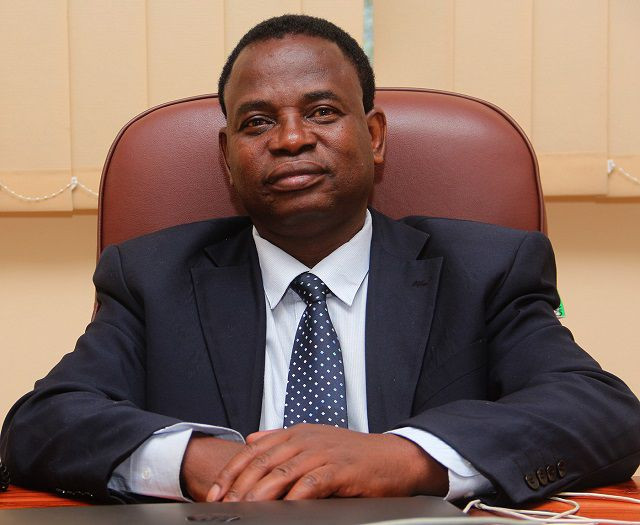BY NIGEL NYAMUTUMBU
As the curtain comes down on the year, one cannot be blamed for being at sea as to the direction Zimbabwe is taking, considering the contrasting indicators of both progression and regression.
On one hand, at least from a narrow assessment of the media sector, which is critical in the broader socio-economic and political discourse – there are as many reasons to be optimistic for genuine reforms in as much as there is compelling evidence to be concerned about spiraling threats, not only to media freedom, but to the existence of independent journalism.
To make this submission a little more practical, let’s assess significant steps that have been taken on the legal front in 2021 that should be acknowledged in fairness and products of sustained advocacy thereof.
The most recent developments in the media legislative agenda was the enactment of the Data Protection Act.
This overdue legislation, primarily in protecting citizens’ personal information in the digital age has some progressive provisions, more so in establishing a framework on how sensitive information ought to be stored.
Keep Reading
- Chamisa under fire over US$120K donation
- Mavhunga puts DeMbare into Chibuku quarterfinals
- Pension funds bet on Cabora Bassa oilfields
- Councils defy govt fire tender directive
Citizens’ personal information is carried by various agencies, more so in the digital age, including but not limited to mobile operators, banks, electoral commission, medical facilities and employers, among others.
How we store this information and ensure minimum leakages ought to be regulated in defined terms.
The Data Protection Act seeks to mitigate this through the establishment of an authority, defining the rights of data subjects, in this case citizens whose right to privacy is protected in terms of Section 57 of the constitution and the law sets out measures to be taken should this protected information be interfered with, through hacking for example.
All this is relatively progressive, save for the fact that the function to preside over the protection of citizens’ information or put simply, the Data Protection Authority was vested in the Postal and Telecommunications Regulatory Authority of Zimbabwe (Potraz), something that has potential for conflict of interest in matters where the regulator is being challenged.
In other words, what happens when one feels aggrieved by Potraz in terms of use of personal information as provided for in terms of the law?
How would they raise their case with the Data Protection Authority, which already has a broader mandate outside protecting personal information?
Of course, it could potentially be a discussion for another day, it is notable that at least there is a framework and measures for recourse in instances where personal information is concerned.
The same can be said of the criminal provisions that are justifiable in a democratic society, such as revenge pornography, which perpetrators of gender violence online often use when love or their relationships turned sour.
There are other provisions to protect children, including the transmission and dissemination of digital information harmful to the young in society.
All this is relatively progressive until one gets to provisions that purport to address disinformation, misinformation and false information.
The hope that had been generated from the progressive provisions is clouded in provisions that in all intents and purposes retain criminal defamation within our country’s statutes.
The Constitutional Court pronounced itself on criminal defamation, outlawing the arrest of persons, most of whom affected are journalists and those working in information on accounts of having damaged someone’s reputation to the extent that it warranted a jail term.
Not only do provisions of this section of the Data Protection Act sneak back criminal defamation, they are ambiguous to the point that one can get arrested for merely forwarding a message that is deemed to be false.
There are certainly more democratic ways of promoting information literacy than the threat of arrest.
In any case, such laws make it easy to target influencers to send a message to dissenting voices under the guise of either promoting truthful information or on allegations of inciting public violence.
The law is then used as a weapon to silence dissent and to muzzle critics.
Zimbabwe unfortunately has a dark history of using the law to target groups and individuals opposed to the regime.
With elections looming in 2023, skeptics would be justified to view such laws as among a plethora of measures being used to prepare the campaign trail, whose playing field is often marred by regressive provisions of the law as is the case with provisions within the Data Protection Act.
Beyond the law, the curse of moving a step forward and two backwards can also be argued in so far as the historic licensing of community radio initiatives, most of which had been organised for the last decade.
While it is welcome that these initiatives have finally been awarded with licenses, it is of concern in equal measure that the statutes and environment in which these stations operate in make them prone to editorial interference.
The perception that community radios are confined to a geographical location with spheres of influence directly or indirectly from the state narrows the whole debate around ensuring broadcasting diversity to mere access without dealing with the fundamental question around the quality of content that will be available to the communities.
There are also concerns around the sustainability of these interventions, more so when you assess how in terms of the law these community stations are not allowed to fundraise from the diaspora community or from development partners.
This makes it difficult for these stations to be going concerns as the funding base is narrowed in terms of the law.
The discourse on co-regulation of the media is another one characterized by the curse of moving one step forward and two steps backwards.
Progressively, there is consensus among stakeholders on co-regulation, anchored on self-regulation as the viable form of regulating journalistic practice in Zimbabwe.
Retrogressively, stakeholders have failed to reach consensus in defining co-regulation as a result of elements that are either stuck in history or have misguided misconceptions of the operations of the media and outright baseless fears.
Zimbabwe missed an opportunity to bury the ghost of the Access to Information and Protection of Privacy Act (AIPPA) in 2021 owing to an inherent culture opposed to reform and lack of appreciation of the context and the constitutional imperative to free the media.
The country’s media remains at the crossroads.
We can certainly draw from the incremental gains accrued in 2021.
But the indicators, including but not limited to provisions that sneak back criminal defamation as in the case of the Data Protection Act show that we could be heading towards a stiffer road for the media.
Buckle up and brace for a jerky journey in 2022!
- Nigel Nyamutumbu is a media development practitioner, currently heading the secretariat of a network of media professional associations and support organisations, the Media Alliance of Zimbabwe (MAZ). He can be contacted on njnya2@gmail.com or on +263 772 501 557. This article was first published in the Accent, a MAZ initiative





